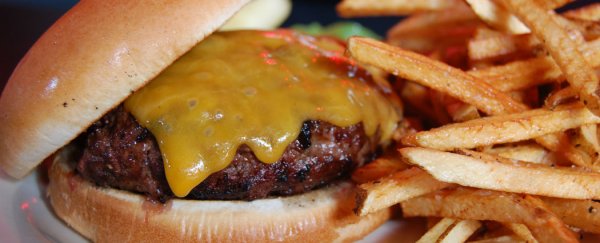After a night of heavy drinking, your best bet for warding off a hangover is downing a bunch of water and eating something, right? Wrong. A recent study of Dutch college students found that drinking water or eating after drinking alcohol had practically no effect on how severe their hangovers were the next morning, BBC News reported.
"Currently, the only effective method to prevent a hangover is to consume alcohol in moderation," the researchers wrote in the study, presented last week at the European College of Neuropsychopharmacology conference. In other words, the only way to stop a hangover is to not drink so much in the first place.
Claims of supposed hangover 'cures' abound, but there's little evidence to back them up. A 2005 review study in the British Medical Journal found that none of the treatments they tried - from blood pressure medication to a prickly pear supplement - were effective at preventing or treating the headaches, nausea, thirst, and fatigue that typically characterise a hangover.
In the new study, Joris Verster of Utrecht University in the Netherlands and his colleagues asked 826 Dutch students about their most recent heavy drinking experience that resulted in a hangover the following day. The students reported how much they drank and whether they consumed any water or food immediately afterward. The students also ranked their hangover severity on a scale of 0 (none) to 111 (extreme).
Just over half of the students said they'd eaten after drinking and before going to bed. But the severity of their hangovers (average rating of 24 out of 111) wasn't noticeably different from those who ate nothing at all (26 out of 111), even when the researchers took into account the fact that the students who went to bed without eating also tended to have had a lot more to drink.
A little less than half of the surveyed students said they'd eaten a heavy, breakfast after drinking, while just over a third said they'd eaten fatty food to try to prevent a hangover. When asked to rate how effective they thought their snacking habits had been in preventing a hangover on a scale of 1-10, with 10 being the most effective, the students gave themselves a 5.5 and 5.4, respectively.
In addition, they ranked the effectiveness of drinking water while consuming alcohol or before going to bed as 5.2 and 5.6 out of 10, respectively. "Those who took food or water showed a slight statistical improvement in how they felt over those who didn't, but this didn't really translate into a meaningful difference," Verster said in a statement.
But he added that, "These are early questionnaire-based studies, and are amongst the first of their kind. This means they have limitations, but they do give us an indication of what happens."
One obvious limitation is that it wasn't a controlled experiment (in which every variable is kept constant except the one you want to study), but instead relied on the subjective experiences and recollections of college students. The researchers also didn't measure the students' blood alcohol concentrations to confirm how much they had drunk.
In addition, heavy drinking is known to cause dehydration, but that isn't necessarily what causes a hangover, says Verster. "Drinking water may help against thirst and dry mouth, but hangover symptoms such as nausea persist," Verster told Business Insider in an email.
The findings have not yet been published in a scientific journal.
This article was originally published by Business Insider.
More from Business Insider:
